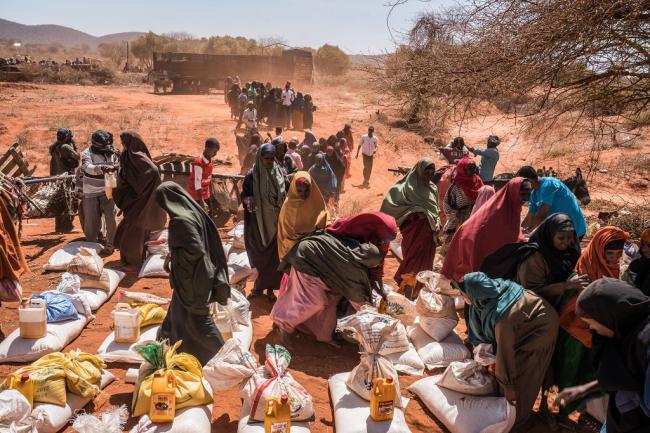
Global action keeping famine at bay but failing to prevent suffering, UN chief warns
“To keep famine at bay doesn’t mean to keep suffering at bay,” Guterres said at a high-level event on famine prevention and response, organized by the UN Office for the Coordination of Humanitarian Affairs (OCHA) and the World Bank.
“So, millions and millions of people suffer, millions and millions of people are not food secure, and we have people dying at this very moment,” he added.
The Secretary-General noted that since the call for action was issued in February, 60 per cent of the $4.9 billion required to cover urgent humanitarian operations has been received.
Humanitarian agencies and their partners are reaching close to 30 million people each month with life-saving food, livelihood support, health, water and sanitation and nutrition assistance, he added.
However, in each of the four countries, people’s needs have deepened since February.
In South Sudan, 6 million people are now severely food insecure – an increase of one million, and more than half of the population.
In Somalia, 3.1 million people are now unable to meet their daily food needs – an increase of 200,000 since the call to action.
In Yemen, the scene of the greatest humanitarian crisis in the world, a staggering 17 million people are now food insecure, 6.8 million of whom are one step away from famine.
And in north-eastern Nigeria, around 5.2 million people are severely food insecure and in need of emergency assistance. Of an estimated 450,000 children who will suffer from severe acute malnutrition this year, one in five is likely to die without specialized treatment.
Unfortunately, despite the generosity of some donors, $1.8 billion is still urgently needed, and that figure is expected to increase by the end of the year, Guterres said.
Humanitarian aid is saving lives, but a long-term solution depends on ending and preventing conflict, a most important factor behind these crises, he added.
Also addressing the event was Mark Lowcock, Under-Secretary-General for Humanitarian Affairs and Emergency Relief Coordinator, who stated that global attention must remain fixed on the task of saving lives and investing together in the future as “the risk of famine has clearly not passed.”
Photo: Giles Clarke/Getty Images Reportage
Source: www.justearthnews.com
Support Our Journalism
We cannot do without you.. your contribution supports unbiased journalism
IBNS is not driven by any ism- not wokeism, not racism, not skewed secularism, not hyper right-wing or left liberal ideals, nor by any hardline religious beliefs or hyper nationalism. We want to serve you good old objective news, as they are. We do not judge or preach. We let people decide for themselves. We only try to present factual and well-sourced news.







